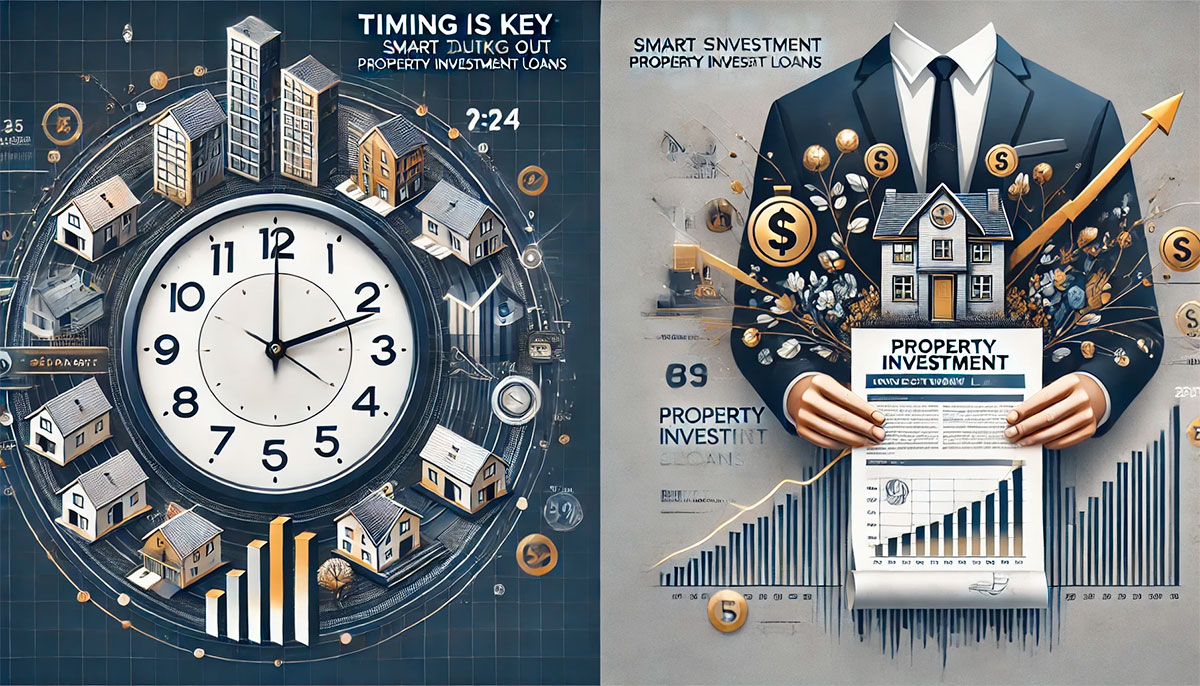Investing in property is a significant financial decision that can lead to substantial returns over time. However, many investors require external financing to make their property investment dreams a reality. Taking out a loan for property investment can be a smart move, but it’s essential to understand when the timing is right. In this article, we will explore key factors to consider when deciding to take out a loan for property investment.
Assessing Market Conditions
One of the most critical factors in deciding when to take out a loan for property investment is the state of the real estate market. Understanding market conditions can help you determine whether it’s a good time to buy. If property prices are rising, taking out a loan early may allow you to secure a property before prices increase further, giving you the advantage of capital appreciation. On the other hand, if the market is in decline, it may be worth waiting for a more favorable buying opportunity.
It’s also important to consider interest rates when assessing the market. Lower interest rates can reduce the cost of borrowing, making it an ideal time to take out a loan for property investment. Monitoring economic trends and real estate cycles can help you determine the best time to invest with a loan.
Your Financial Stability
Before taking out a loan for property investment, you should evaluate your financial stability. This means having a clear understanding of your current income, savings, and existing debts. Lenders will assess your financial health before approving a loan, so it’s crucial to ensure that you have a stable source of income and the ability to manage monthly loan payments.
If you already have substantial debts or unpredictable income, it may be wise to delay taking out a loan until you improve your financial situation. Property investment is a long-term commitment, and financial stability is key to ensuring that you can handle the responsibilities of loan repayment.
Long-Term Investment Strategy
Property investment is often a long-term game, and it’s important to have a clear strategy in place before taking out a loan. Ask yourself what your goals are for the investment. Are you looking to buy a property for rental income, or do you plan to flip the property for a quick profit? Your investment strategy will influence the type of loan you need and the terms that are most favorable for you.
For example, if you’re planning to hold the property for rental income, you may want a long-term fixed-rate loan that offers stability in your payments over time. On the other hand, if you’re planning to sell the property within a few years, a shorter-term loan with a lower interest rate might be a better option.
Calculating Return on Investment (ROI)
Before committing to a loan for property investment, you should calculate the potential return on investment (ROI). This involves looking at the property’s projected rental income, potential appreciation, and the costs associated with maintaining the property. Comparing these figures against the cost of the loan, including interest payments, will give you a clear picture of whether the investment is likely to be profitable.
It’s also important to account for unexpected expenses, such as repairs or vacancies, when calculating your ROI. A loan should only be taken out when you’re confident that the property’s income and appreciation will outweigh the costs, ensuring that your investment will be profitable in the long run.

Weighing Loan Types
There are various types of loans available for property investment, and choosing the right one is critical to your success. Common loan options include traditional mortgages, home equity loans, and hard money loans. Each type has its benefits and drawbacks, and the right choice depends on your financial situation and investment goals.
For long-term property investments, traditional mortgages are often the best choice due to their stability and lower interest rates. However, if you’re looking to flip a property quickly, a hard money loan may provide faster access to capital, albeit with higher interest rates. Understanding the pros and cons of each loan type can help you determine when to take out a loan for property investment.
Considering Personal Risk Tolerance
Taking out a loan for property investment comes with inherent risks, and it’s important to evaluate your personal risk tolerance before making a decision. Property values can fluctuate, and market downturns can lead to decreased income from rental properties or difficulty selling at a profit. Additionally, the responsibility of repaying a loan regardless of the property’s performance adds a layer of financial pressure.
If you have a low risk tolerance, it may be best to wait until you’ve built a strong financial cushion or consider a smaller loan. On the other hand, if you’re confident in the market and your investment strategy, a loan can help you capitalize on lucrative opportunities in the property market.
Timing the Purchase with Economic Trends
Economic factors such as inflation, unemployment rates, and government policies can all impact the property market. It’s important to consider these broader economic trends when deciding when to take out a loan. For instance, during periods of low inflation and stable employment, property prices tend to rise, making it an opportune time to invest.
Additionally, government incentives such as tax breaks or first-time homebuyer programs can reduce the cost of property investment, making it easier to manage a loan. Timing your investment to coincide with favorable economic conditions can maximize your returns and minimize financial risks.
Conclusion
Taking out a loan for property investment is a significant financial decision that requires careful consideration of market conditions, financial stability, and long-term strategy. By assessing your investment goals, calculating ROI, and choosing the right type of loan, you can determine the best time to take out a loan and capitalize on property investment opportunities. With the right approach, a well-timed loan can empower you to build wealth through real estate.



